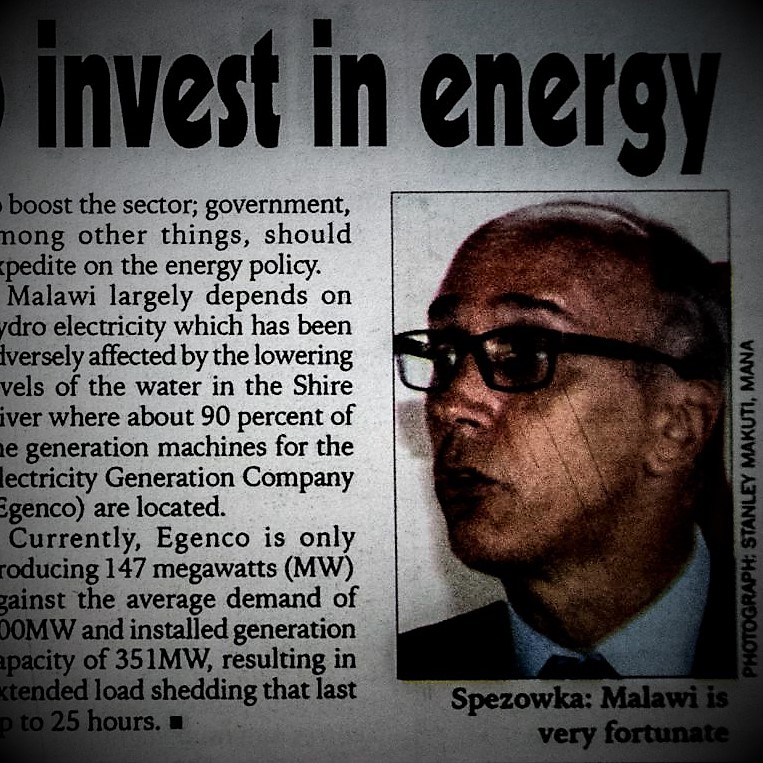
The 2017 United Nations Conference on Trade and Development (Unctad) Least Developed Countries (LDCs) report says poor countries, including Malawi, need a 350 percent increase yearly to achieve the global goal of universal access to energy by 2030.
The reported, launched yesterday, shows that access to energy plays a major role in the economic transformation of any country and Malawi is no exception.
A recent Fourth Integrated Household Survey (IHS4) conducted by National Statistical Office (NSO) showed that access to electricity in Malawi increased from 7.8 percent in 2011 to 10.7 percent in 2016. In the rural area, access to electricity is at 2 percent.
This is in contrast to an average access to electricity of 35.4 percent at national level and 14.9 percent in the rural level for other sub-Saharan Africa countries.
Speaking at the launch of the report in Lilongwe, United Nations Development Programme (UNDP) portfolio manager Andrew Spezowka said Malawi is far below the average of the LDCs in terms of access to energy which calls for structural transformation in the energy sector.
He said: “Malawi is very fortunate because there is incredible interest by private investors in the region to invest in the energy sector. The private sector needs to have clear signals from government so that they know their investments are profitable.”
In his remarks, Community Energy Malawi (CEM) country director Edgar Kapiza Bayani said to boost the sector; government, among other things, should expedite on the energy policy.
Malawi largely depends on hydro electricity which has been adversely affected by the lowering levels of the water in the Shire River where about 90 percent of the generation machines for the Electricity Generation Company (Egenco) are located.
Currently, Egenco is only producing 147 megawatts (MW) against the average demand of 300MW and installed generation capacity of 351MW, resulting in extended load shedding that last up to 25 hours.
